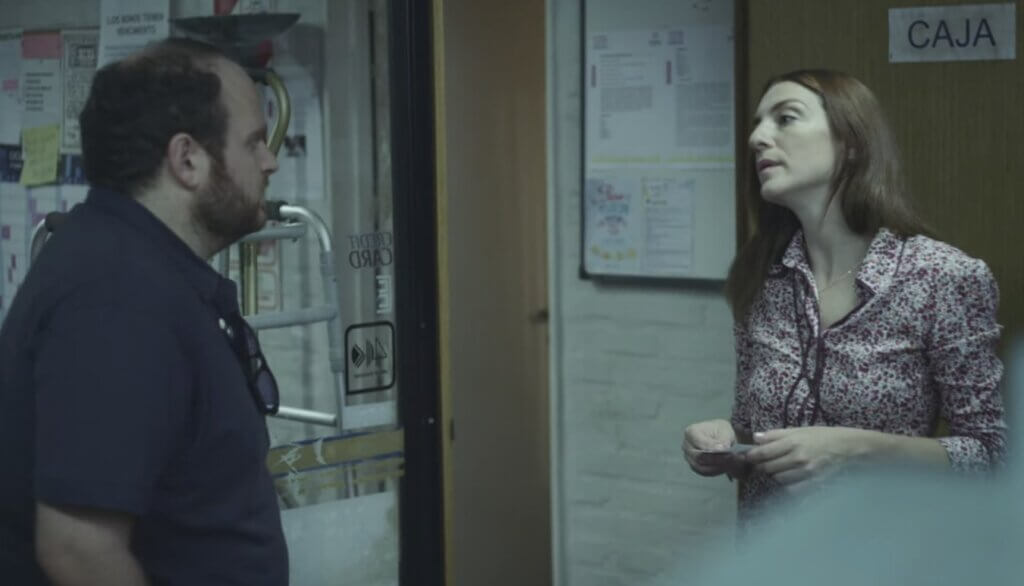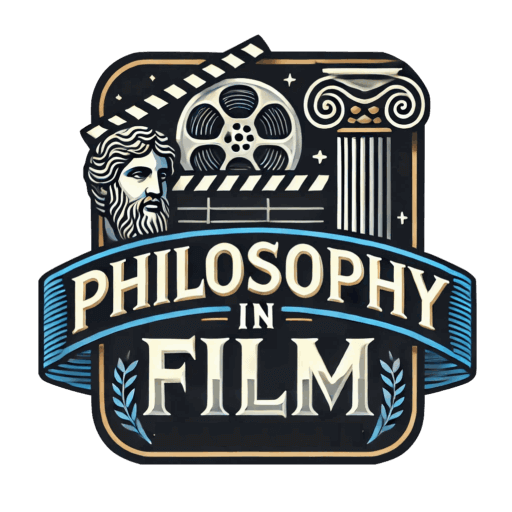El Rey Del Once (2016), An Intimate Look at Jewish Life in Buenos Aires
El Rey Del Once (2016) is an Argentine film about a Jewish thirty-something who returns to his home neighborhood in Buenos Aires. The heavily Jewish neighborhood of Once (pronounced on-say) is famous throughout Argentina for its tight-knit religious community, busy shops, and insulated culture. Despite focusing heavily on the film’s protagonist, Ariel (Alan Sabbagh), and his complicated relationship with his father, El Rey Del Once is most definitely a film of place.
I’ve had the pleasure of strolling through Once, buying clothes and knickknacks at local businesses, speaking in my broken Spanish to shop owners. While Buenos Aires has a significant Jewish population, ranging from secular to Orthodox, Once is a neighborhood where anyone and everyone is welcome. That said, just about everything you encounter — from the food to the businesses — is distinctly Jewish. Director Daniel Burman expertly captures this atmoaphere with his shaky camera that rambles through the streets and into people’s lives. Many of the events feel like they were filmed without any staging, to simply show what life is like in the historic neighborhood. So, even if you’ve never been to Once, El Rey Del Once will make you feel as though you have.
There are subtle, darkly comedic elements to the story that make it operate at a higher level than it appears at first glance. On the surface, El Rey Del Once (billed as “The Tenth Man” in English-speaking markets) plays as a moralistic, perhaps even conservative tale about a man who returns home and, despite being bombarded with the nuisances that probably drove him away in the first place, comes to appreciate his roots more than ever. Fortunately, the story pushes forward without too much sentimentality, instead portraying Once (and Buenos Aires at large) as the bustling, non-stop, chaotic, frustrating place that it is.
The narrative proceeds without much direction, either, with events unfolding as little vignettes. Ariel constantly takes calls from his father, Usher, who remains an unseen but constant presence in the film. Thus, he functions as a God-like figure who instructs Ariel to fulfill various tasks. Usher runs the neighborhood’s largest charitable organization, which helps provide the people of Once with anything and everything they might need, from baby shoes to food to work. This runs in contrast to Ariel’s economic theories and appreciation for free-market capitalism. Consequently, Ariel and Usher have little in common, with vastly different ideas of how they should live their lives.
One can read the relationship between father and son as a metaphor for the benefits of faith in a higher power. Only by following all of his father’s instructions can Ariel help the people of his neighborhood and shed his more worldly aspirations. However, the film also contradicts its more traditional ideas through its one consistent subplot, in which Ariel lusts after a mute Orthodox woman, Eva (Julieta Zylberberg). Needless to say, they are forbidden from having any kind of relations for religious reasons, to say nothing of Ariel’s obligation to his girlfriend who waits for him somewhere abroad.

The film’s English title (The Tenth Man) is a reference to the Jewish practice of minyan, which requires ten men to bepresent for certain religious ceremonies. It is especially common at funerals, and Usher prides himself as someone who always functions as the tenth man for those who need him, even if he doesn’t know them directly. For this reason, Usher is the ever-present (yet unseen) God, selfless man, and unofficial king (rey) of Once. Meanwhile, Ariel represents everything that people like Usher would theoretically abhor: selfishness, materialism, and laziness.
Yet, the relationship isn’t one of hatred; it is one of adversarial ideas, to be sure. Nonetheless, the two men maintain their connection out of familial obligation, as well as a sincere desire to change one another, if just a little bit. However, Ariel has virtually no power to change his father, whose lack of presence and constant demands make him an indisputable authority.
Even if you ignore the fascinating look at Once and the Jewish community in Buenos Aires, El Rey Del Once is one of the few films that attempts a deity character (or pseudo-diety) without feeling contrived or preachy. Ariel goes on his own journey of self-discovery, guided by the whims of his father and the needs of his fellow citizens. Yet, religion merely acts as a cultural element rather than a driving narrative force. As a result, we can observe Jewish customs in an Argentine environment, free of moral platitudes or sermons.
El Rey Del Once (2016) Movie Rating: ★★★★ out of 5
If you’d like to watch El Rey Del Once (2016), it is currently available to purchase via Amazon or stream on Netflix. For more film reviews like this one, be sure to check out the Philosophy in Film homepage!

